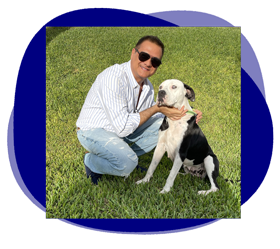The Ripple Effect of Compassion: How Philanthropy Creates a Cycle of Giving
Compassion is a powerful force. It drives us to see the struggles of others as if they were our own and compels us to act. My journey as a philanthropist has taught me that every act of kindness creates ripples far beyond what we can immediately see. Whether through rescuing animals, supporting education, or giving back to communities, I’ve witnessed how compassion can inspire others to pay it forward, creating a cycle of giving that grows exponentially over time. The Beginnings of Compassionate Action For me, compassion took root in unexpected ways. When I first started rescuing animals in Baja California, Mexico, it wasn’t part of a grand plan. I had gone there seeking a retreat—a peaceful escape from the fast-paced demands of life. But instead, I found myself face-to-face with the harsh realities many animals face: stray dogs and cats injured, starving, or dying on the streets. At first, the magnitude of the problem felt overwhelming. How could I possibly make a difference? But when I stopped to help a dog that had been hit by a car, I realized something profound: change starts with one small act of kindness. That single rescue grew into a mission, and today, Last Hope for Paws has saved nearly 1,000 animals. What surprised me most was how my efforts began to inspire others. Local residents, veterinarians, and volunteers came forward to join the cause. People who had never considered rescuing animals before started to see it as their responsibility, too. The cycle of giving had begun, and I was just one part of it. Inspiring Others Through Education Another area where I’ve seen the ripple effect of compassion is in education. When I reflect on my own life, I know that opportunities to learn and grow have been critical to my success.

